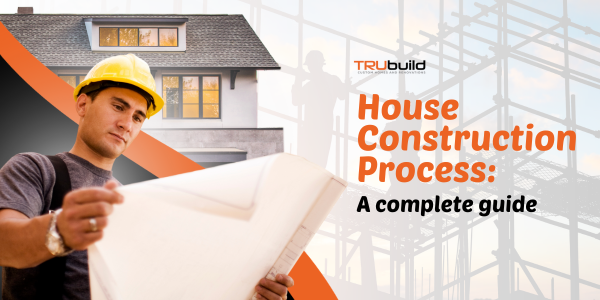
Building a home is an exciting and momentous undertaking, a tangible manifestation of dreams and aspirations. However, the process of transforming a vacant lot into a dream abode can seem daunting, especially for first-time homeowners. This comprehensive guide aims to unravel the intricacies of house construction, providing a roadmap for navigating the journey from conception to completion.
House Construction Tips
The Pre-Construction Phase: Laying the Foundation for Success
Before the first shovel breaks ground, a series of crucial steps lay the foundation for a successful construction project. These steps involve:
- Land Acquisition: Selecting the ideal plot of land is paramount, considering factors such as location, size, topography, and suitability for the desired home design.
- Design and Planning: Collaborating with an architect or designer to create blueprints that translate your vision into reality is essential. This stage involves finalizing the layout, materials, and aesthetics of the home.
- Budgeting and Cost Estimation: Developing a realistic and comprehensive budget is crucial to avoid financial surprises. To know how much it costs to build a home in Canada, consult with experienced contractors and consider factors such as material costs, labour expenses, and unforeseen contingencies.
- Permits and Approvals: Securing necessary permits and approvals from local authorities is essential to ensure compliance with building codes and regulations.
The Construction Phase: Bringing the Vision to Life
With the pre-construction phase complete, the exciting stage of constructing the home begins. This phase involves:
- Site Preparation: Preparing the building site involves clearing the land, levelling the ground, and establishing proper drainage.
- Foundation and Framing: The foundation, the bedrock of the home, is laid, followed by the framing, which provides the structural skeleton of the building.
- Exterior Finishing: The exterior walls are clad with chosen materials, such as siding, brick, or stone, giving the home its distinct character.
- Roofing: A sturdy and weatherproof roof is installed, ensuring protection from the elements.
- Interior Finishing: The interior takes shape, with walls being drywalled, insulation installed, and flooring laid.
- Windows and Doors: Windows and doors are installed, providing natural light, ventilation, and access to the home.
- Mechanical, Electrical, and Plumbing (MEP) Systems: The heart of the home takes form, with plumbing pipes, electrical wiring, and HVAC systems installed.
- Finishing Touches: The final details are addressed, including painting, trim installation, and landscaping.
Post-Construction Phase: Ensuring Quality and Satisfaction
After the construction phase, the post-construction phase ensures the quality and livability of the new home:
- Inspections and Approvals: Final inspections are conducted by local authorities to ensure compliance with building codes.
- Punch List Completion: Any minor defects or imperfections identified during inspections are rectified.
- Warranty Coverage: Warranties are activated to protect against any unforeseen issues or defects.
- Move-In and Settling In The moment of triumph arrives as the new homeowners move in and begin creating memories in their dream homes.
The Importance of Hiring a Custom Home Builder
In the realm of home construction, the role of a custom home builder is paramount. These experienced professionals serve as guides and advisors throughout the entire process, ensuring that your dream home is brought to life seamlessly and efficiently. Here’s why hiring a custom home builder is essential:
- Expertise and Experience: Custom home builders possess a wealth of knowledge and experience in all aspects of home construction, from navigating building codes and selecting materials to overseeing construction and resolving unforeseen challenges.
- Personalized Approach: Unlike production builders who adhere to standardized designs, custom home builders take the time to understand your unique needs, preferences, and lifestyle, crafting a home that truly reflects your individuality.
- Communication and Collaboration: Custom home builders foster open and transparent communication throughout the construction process, keeping you informed of progress, addressing concerns promptly, and ensuring that your vision remains at the forefront.
- Problem-Solving and Adaptability: Inevitably, unforeseen challenges arise during construction. Custom home builders possess the expertise and adaptability to navigate these hurdles, finding creative solutions and ensuring that your project stays on track.
- Quality Assurance and Warranty Coverage: Custom home builders take pride in their workmanship and stand behind their work. They provide quality assurance measures and comprehensive warranties to protect your investment and guarantee your satisfaction.
Conclusion
Building a home is a significant investment, both financially and emotionally. By understanding the intricacies of the house construction process, from pre-planning to post-completion, and by enlisting the expertise of a trusted custom home builder, homeowners can embark on this journey with confidence.